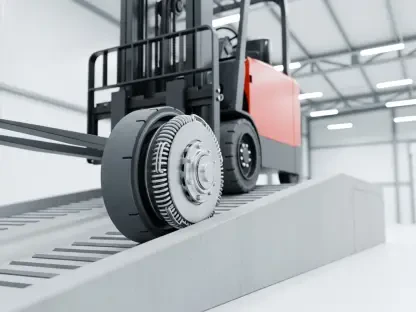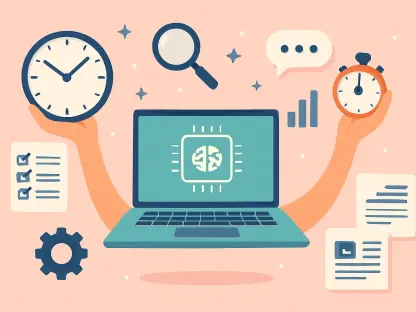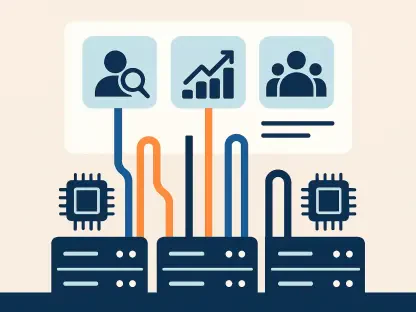Human Resources, once seen primarily as an administrative function, is undergoing a profound transformation propelled by innovative technology. Today, organizations recognize HR as a strategic partner in driving company success, thanks to advancements in artificial intelligence, analytics, and digital platforms. The integration of these technologies enables HR departments to refine processes, enhance employee experiences, and create more inclusive environments. From recruitment to performance management, the contemporary HR landscape is more dynamic, sophisticated, and attuned to the needs of a modern workforce. To keep pace with changing expectations and organizational goals, HR professionals are increasingly embracing a tech-driven approach, ensuring that HR practices contribute meaningfully to business objectives. The following exploration offers insights into pivotal trends reshaping HR roles, emphasizing the power of technology as a catalyst for creating future-ready workplaces. These insights highlight how HR departments are evolving to become growth engines that prioritize employee engagement, data-driven decision-making, and seamless integration into everyday workflows.
AI-Driven Talent Acquisition
Technology’s impact on recruitment marks a significant stride in HR evolution, as artificial intelligence becomes central in identifying top talent quickly and efficiently. AI tools streamline hiring processes by automating tasks such as resume parsing and job matching while enhancing the quality of candidate assessments. Sophisticated algorithms, like those utilized by HireVue and Eightfold.ai, analyze vast pools of data, including skills, experiences, and career potential, thereby refining candidate selection. Pre-screening interviews conducted by chatbots further expedite recruitment timelines and reduce biases that might occur during the earliest stages of hiring. As such, AI-driven talent acquisition is transforming how organizations recognize and attract suitable candidates. These automated systems ensure fairness and equality in the hiring process, offering a transparent and bias-free approach to talent acquisition. The widespread adoption of AI in recruitment underscores technology’s role in advancing HR functions, highlighting the importance of agility, innovation, and strategic foresight in meeting today’s and future workforce demands.
Personalized Employee Experience Platforms
The shift toward employee-centered workplaces is gaining momentum as HR departments deploy personalized experience platforms that cater to individual needs and preferences. Leveraging data to understand employee sentiments, behaviors, and aspirations, these platforms offer tailored dashboards that provide customized learning modules, professional development resources, and wellness programs. The approach mirrors the personalization found in consumer tech, similar to Netflix, where choices are guided by past preferences and interactions. Companies like Workday, Peakon, and Microsoft Viva exemplify this trend by using analytics to enhance workplace engagement, supporting retention efforts and increasing employee satisfaction through strategic nudges and feedback loops. Adaptability and responsiveness are at the core of these platforms, fostering a culture that values continuous improvement and alignment with individual career paths. Employee engagement has become a key metric as organizations recognize the significance of personalizing the professional journey, leading to a more committed and driven workforce. In embracing personalized experiences, HR departments not only support employees in reaching their full potential but also cultivate an environment conducive to growth and innovation.
People Analytics as a Core Strategy
The deployment of people analytics is revolutionizing HR’s approach to workforce management, transforming data into actionable insights. With sophisticated tools such as Visier and Qualtrics, HR leaders access real-time dashboards that visualize key performance indicators like employee satisfaction, diversity metrics, and retention forecasts. These analytics enable businesses to identify high-potential individuals, mitigate attrition risks, and optimize team productivity, effectively linking workforce strategies directly to organizational objectives. Data has become instrumental in guiding strategic HR decisions, akin to how oil once powered industries. Organizations leverage predictive models to forecast trends and outcomes, ensuring HR practices remain aligned with overarching business goals. The integration of such analytics reflects a shift in HR’s role from traditional gatekeeping to becoming a strategic driver of business success, using untapped data for competitive advantages. By synthesizing employee data with organizational needs, HR departments are empowering decisions that enhance workplace culture, elevate productivity, and support long-term growth.
Internal Talent Marketplaces
Internal talent marketplaces have emerged as pivotal in redefining workforce mobility, creating avenues for employees to explore new roles and projects within their current organizations. This concept focuses on fostering internal career paths, reducing dependency on external hiring by enabling employees to contribute to diverse projects based on their skills and interests. Innovative platforms employ artificial intelligence to match individuals with short-term gigs, akin to freelance assignments but within a company setting. Such marketplaces promote career development, encouraging employees to embrace skill-building opportunities that align with professional aspirations. Unilever and Deloitte are exemplary organizations that have adopted this model, demonstrating its effectiveness in enhancing retention efforts by prioritizing internal growth and development. As employees navigate these opportunities, they gain exposure to varied experiences without changing employers, fostering loyalty and boosting engagement. By capitalizing on internal talent pools, organizations not only retain skilled professionals but also cultivate a dynamic workforce capable of adapting to evolving company needs. Internal talent marketplaces highlight the value of nurturing talent within and creating environments where career progression and organizational goals can be harmoniously aligned.
Automation and Digital Onboarding
Automation is reshaping traditional onboarding practices, making them more streamlined, efficient, and user-friendly. By automating routine HR tasks such as document signing, provisioning access, and conducting compliance training, organizations improve onboarding experiences while significantly reducing HR administrative burdens. This shift allows HR teams to focus on strategic functions, enhancing their role in driving organizational outcomes. Digital onboarding solutions, governed by automation, ensure that new hires are swiftly integrated into workflows, supporting their productive contributions from day one. As these technologies automate repetitive tasks, they free HR professionals to engage with more complex initiatives that require strategic insight and judgment. Automation not only enhances efficiency but also contributes to creating an engaging employee experience that values time and resources, emphasizing a seamless transition for newcomers. By integrating innovative onboarding solutions, businesses demonstrate their commitment to embracing technology and maximizing its potential in refining administrative functions, ultimately empowering HR departments to play an active role in organizational growth and success.
DEI Tech for Inclusive Workplaces
Diversity, equity, and inclusion (DEI) have become non-negotiable elements of contemporary workplace culture, driving HR leaders to integrate specialized tech tools across all employee lifecycle stages. Technology plays a pivotal role in promoting DEI by detecting biases in job descriptions, facilitating gender and ethnicity reporting, and gathering anonymous feedback on employee experiences. Platforms like Textio and Kanarys exemplify these initiatives by using cutting-edge technologies to foster equitable environments, ensuring all voices are heard and valued. The integration of DEI tools in HR practices underscores the commitment to building cultures of inclusivity where diversity is actively celebrated and prioritized. These tools enable organizations to make informed decisions regarding policy improvements and employee engagement strategies, reinforcing DEI as an integral aspect of business success. By harnessing technology’s potential, businesses are actively creating spaces where diverse perspectives are appreciated, and cultural differences are seen as strengths. The thoughtful adoption of DEI tech tools demonstrates a proactive approach to ensuring fairness, equality, and inclusivity, setting the foundation for resilient and forward-thinking workplaces.
Ambient HR: Integrated, Invisible, and Always-On
The concept of ambient HR reflects a transformative shift toward seamless integration of HR services into everyday workflows, creating environments where HR support is unobtrusive yet invaluable. Designed to fit into daily operations through digital platforms and productivity tools, ambient HR ensures that employees have access to real-time policy information, learning modules, and digital coaching without interruptive applications. Collaborations with platforms like Slack or Microsoft Teams enable HR interactions to be part of the regular workflow, underscoring the importance of accessibility and immediacy. AI chatbots are deployed for instant assistance, providing a 24/7 resource for individuals needing guidance on organizational processes or performance management discussions. These systems exemplify a holistic approach to HR interactions, where services are embedded into existing infrastructures, fostering a supportive and responsive environment. Employees benefit from ongoing support that is adapted to meet real-time needs, strengthening engagement and resource utilization. Ambient HR represents a forward-thinking paradigm for organizations, one where human resources are integral to daily tasks and powered by innovative solutions that enrich everyday professional experiences.
Navigating the HR Tech Landscape
Once viewed as a mere administrative role, Human Resources is undergoing a transformative journey, powered by cutting-edge technology. Organizations now recognize HR as a strategic partner pivotal to driving success, thanks to advancements in artificial intelligence, analytics, and digital platforms. These technological integrations allow HR departments to enhance processes, improve employee experience, and foster inclusive environments. Whether in recruitment or performance management, the modern HR landscape is increasingly dynamic and sophisticated, responsive to the needs of today’s workforce. As expectations and organizational goals evolve, HR professionals are adopting a tech-centric approach, ensuring HR’s contributions remain integral to business success. This exploration sheds light on the trends reshaping HR roles, underscoring technology’s role as a catalyst for creating workplaces ready for the future. It emphasizes how HR is evolving into a growth engine focused on employee engagement, data-driven strategies, and seamless process integration.









